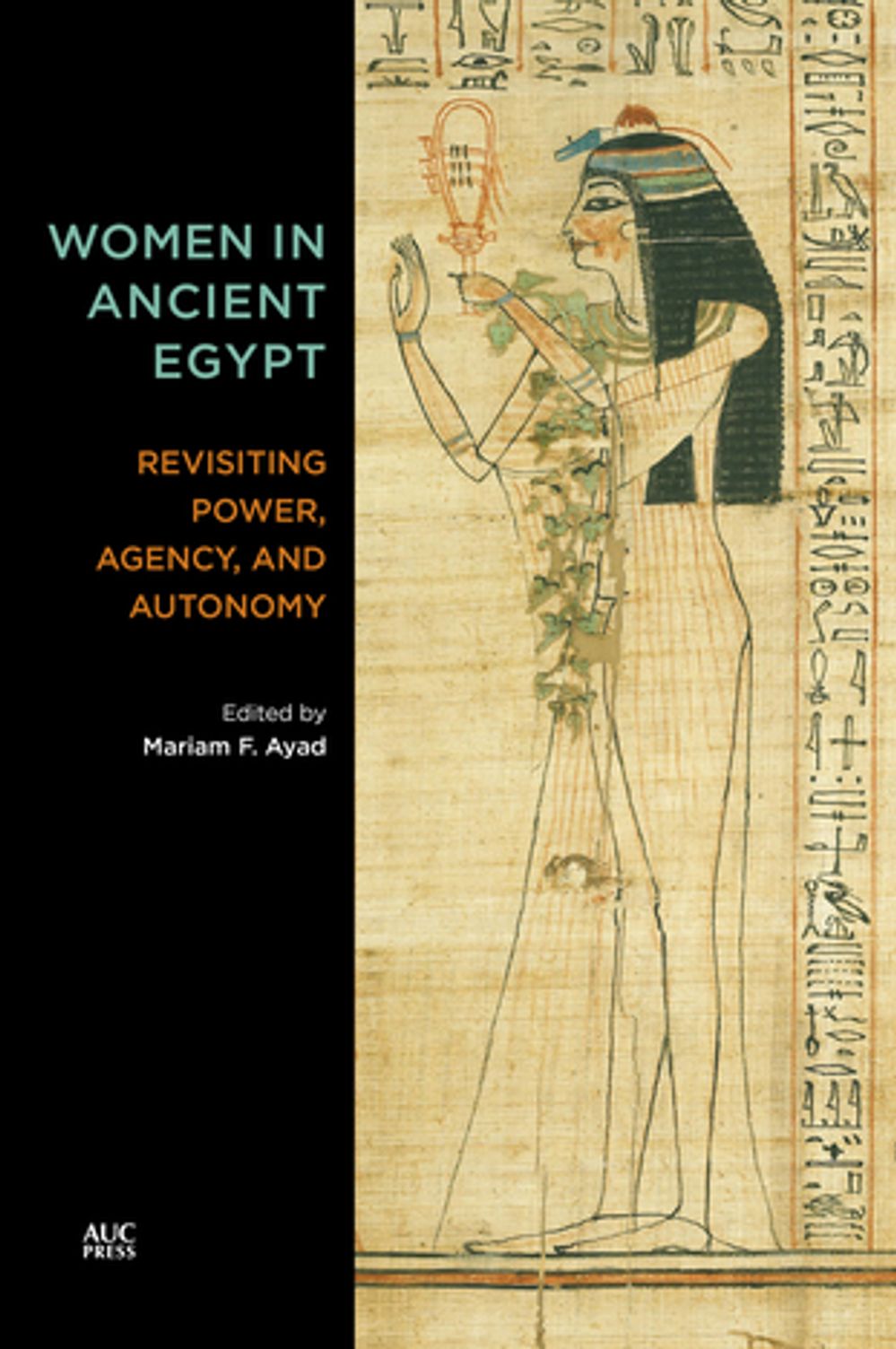Women in Ancient Egypt
Cutting-edge research by twenty-four international scholars on female power, agency, health, and literacy in ancient Egypt There has been considerable scholarship in the last fifty years on the role of ancient Egyptian women in society. With their ability to work outside the home, inherit and dispense of property, initiate divorce, testify in court, and serve in local government, Egyptian women exercised more legal rights and economic independence than their counterparts throughout antiquity. Yet, their agency and autonomy are often downplayed, undermined, or outright ignored. In Women in Ancient Egypt twenty-four international scholars offer a corrective to this view by presenting the latest cutting-edge research on women and gender in ancient Egypt. Covering the entirety of Egyptian history, from earliest times to Late Antiquity, this volume commences with a thorough study of the earliest written evidence of Egyptian women, both royal and non-royal, before moving on to chapters that deal with various aspects of Egyptian queens, followed by studies on the legal status and economic roles of non-royal women and, finally, on women’s health and body adornment. Within this sweeping chronological range, each study is intensely focused on the evidence recovered from a particular site or a specific time-period. Rather than following a strictly chronological arrangement, the thematic organization of chapters enables readers to discern diachronic patterns of continuity and change within each group of women. · Clémentine Audouit, Paul Valery University, Montpellier, France · Anne Austin, University of Missouri, St. Louis, Missouri, USA · Mariam F. Ayad, The American University in Cairo, Cairo, Egypt · Romane Betbeze, Université de Genève, Switzerland, and Ecole Pratique des Hautes Etudes, PSL, France · Anke Ilona Blöbaum, Saxon Academy of Sciences and Humanities in Leipzig, Leipzig, Germany · Eva-Maria Engel, Humboldt-Universität zu Berlin, Berlin, Germany · Renate Fellinger, University of Cambridge, Cambridge, UK · Kathrin Gabler, University of Basel, Basel, Switzerland · Rahel Glanzmann, independent scholar, Basel, Switzerland. · Izold Guegan, Swansea University, UK, and Sorbonne University, Paris, France · Fayza Haikal, The American University in Cairo, Cairo, Egypt · Janet H. Johnson, Oriental Institute, University of Chicago, Chicago, Il, USA · Katarzyna Kapiec, Institute of the Mediterranean and Oriental Cultures of the Polish Academy of Sciences, Warsaw, Poland · Susan Anne Kelly, Macquarie University Sydney, Sydney, Australia · AnneMarie Luijendijk, Princeton University, Princeton, New Jersey, USA · Suzanne Onstine, University of Memphis, Memphis, Tennessee, USA · José Ramón Pérez-Accino Picatoste, Facultad de Geografía e Historia, Universidad Complutense de Madrid, Madrid, Spain · Tara Sewell-Lasater, University of Houston, Houston, Texas, USA · Yasmin El Shazly, American Research Center in Egypt, Cairo, Egypt · Reinert Skumsnes, Centre for Gender Research, University of Oslo, Oslo, Norway · Isabel Stünkel, The Metropolitan Museum of Art, New York, New York, USA · Inmaculada Vivas Sainz, National Distance Education University), Madrid, Spain · Hana Vymazalová, Czech Institute of Egyptology, Faculty of Arts, Charles University, Prague, Czeck Republic · Jacquelyn Williamson, George Mason University, Fairfax, Viriginia, USA · Annik Wüthrich, Austrian Academy of Sciences, Austrian Archaeological Institute, Vienna, Austria
-
Curatore:
-
Anno edizione:2022
-
Editore:
-
Formato:
Formato:
Gli eBook venduti da Feltrinelli.it sono in formato ePub e possono essere protetti da Adobe DRM. In caso di download di un file protetto da DRM si otterrà un file in formato .acs, (Adobe Content Server Message), che dovrà essere aperto tramite Adobe Digital Editions e autorizzato tramite un account Adobe, prima di poter essere letto su pc o trasferito su dispositivi compatibili.
Cloud:
Gli eBook venduti da Feltrinelli.it sono sincronizzati automaticamente su tutti i client di lettura Kobo successivamente all’acquisto. Grazie al Cloud Kobo i progressi di lettura, le note, le evidenziazioni vengono salvati e sincronizzati automaticamente su tutti i dispositivi e le APP di lettura Kobo utilizzati per la lettura.
Clicca qui per sapere come scaricare gli ebook utilizzando un pc con sistema operativo Windows



